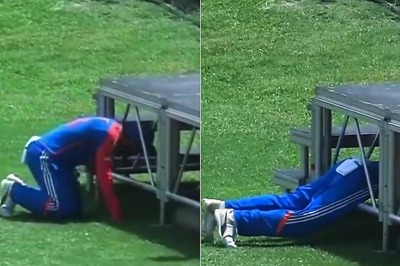
views
New Delhi: Amid the growing anger over the delay in the hanging of the four convicts in the Delhi 2012 gang-rape and murder case, the central government on Wednesday approached the Supreme Court with a petition asking it set time limits for death row prisoners to exercise their last legal options.
Arguing that the current rules are skewed towards convicts and allows them to "play with the law and delay execution”, the Centre has asked the apex court to introduce a 7-day deadline for death row convicts to file mercy petitions and also introduce a time limit for filing of review and curative petitions in such cases.
Also requested in the petition is a direction to all state government and jail officials to issue death warrants within seven days of a convict’s mercy plea being rejected, and to execute the death warrant within seven days thereafter irrespective of the status of the review/curative/mercy petition of his co-convicts.
The petition has been filed on the day that the four convicts in the Nirbhaya case were to be hanged, January 22, going by the death warrant initially issued by a lower court. The execution had to be postponed as the Delhi government told the court that the mercy petitions of one of the convicts, Mukesh Singh, was pending.
The Delhi court last week set 6am on February 1 as the new time for execution after the mercy petition was rejected. But the remaining three convicts — Vinay, Pawan and Akshay — are yet to file their mercy petitions. Vinay and Akshay have also not filed their curative petitions yet, and the delaying tactics have been questioned by both the lower court and the Delhi high court.
Under the rules, even after the mercy petition is rejected by the President, 14 days have to be given to the convict until execution.
The Centre has also that the court amend its 2014 verdict in the Shatrughan Chauhan case where it had ordered jail authorities to ensure the 14-day gap between the rejection of their mercy pleas and their hanging.
The SC had then taken a dim view of the secret executions by the state. “Retribution has no constitutional value in our largest democratic country,” the judges had ruled.


















Comments
0 comment